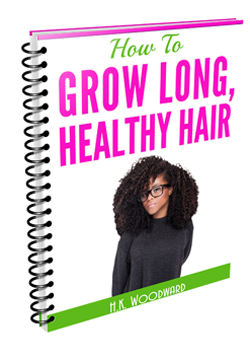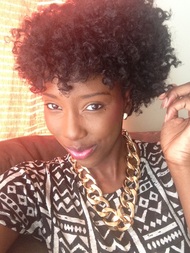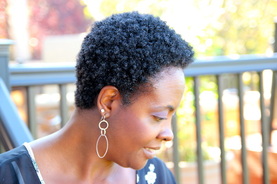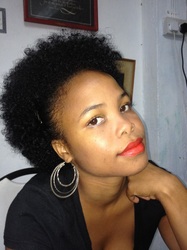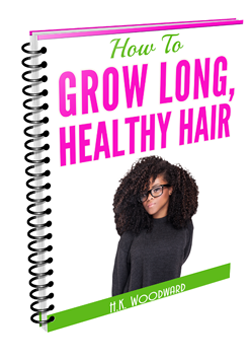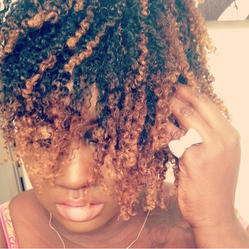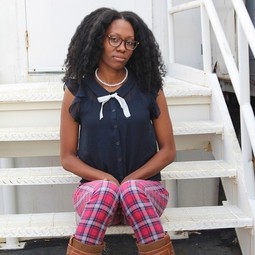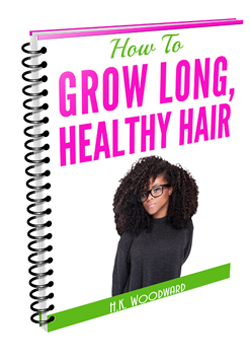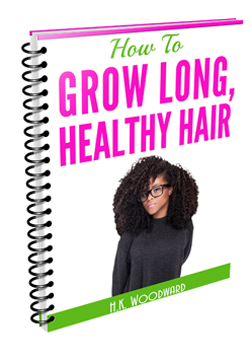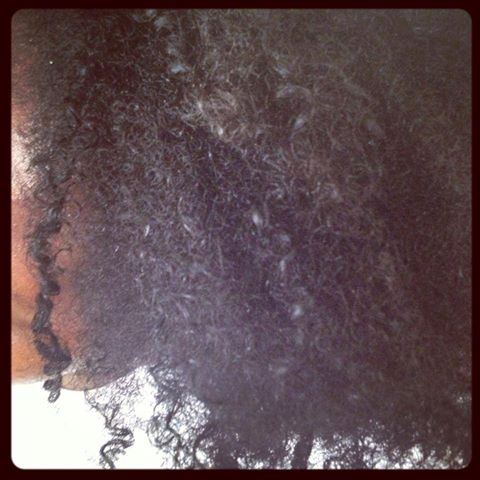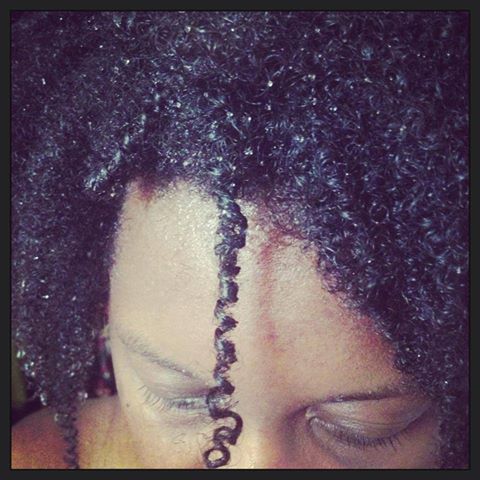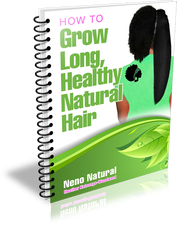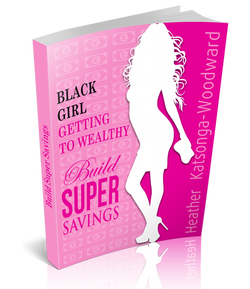|
The Queen of Kinks conditioner can be used for full routine wash, that is, detangle + shampoo + deep condition + moisturize with a different product application at each stage.
Alternatively, if you’re pressed for time or if your hair isn’t that dirty you can detangle your hair, twist it to section, let it sit then rinse, moisturize and go in one easy step. Because the detangler and conditioner are one product you save on time. It’s super convenient as you will see in the below video. Essentially, you are co-washing and deep conditioning at the same time:
0 Comments
You cannot deep condition your hair using a regular conditioner. That’s the first thing you need to keep in mind. A regular conditioner only acts on the surface of hair and does not have the ability to penetrate any further.
If your hair is damaged it means the cuticle layer is uneven. In this case you need a deep conditioner to penetrate through to the damaged areas for repair and maintenance. This repair and maintenance is not permanent, it only last a few days, that is why you need to deep condition at least weekly. Overall, a regular conditioner:
And a deep conditioner also:
What about if your hair is healthy? Is a deep conditioner still needed? If your hair is healthy the cuticles are lie flat and don’t have holes and gaps of damage. This means that a deep conditioner will mostly act on the surface; however, as damage can’t be observed by the naked eye, any small areas of damage will be fixed. With healthy hair a weekly deep condition is not vital but it will definitely help to maintain the healthy condition of your hair. Deep conditioning healthy hair is similar to a person with a fabulous diet also taking a vitamin pill – it isn’t necessary but it ensures they are definitely getting everything their body needs.
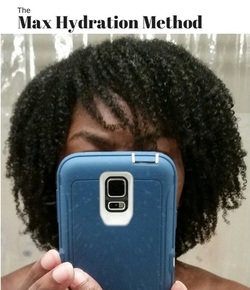
I don’t normally accept guest posts, in fact, this is the very first guest post ever on this hair blog in over two years of writing.
Guest post from Allison Matthews, edited by Heather Katsonga-Woodward. The Max Hydration Method (MHM for short) is, according to maxhydrationmethod.com, “a 5 step regimen that systematically increases moisture levels in the hair until Max Hydration is reached.” This method, championed by Black Hair Media Forum VIP Member PinkeCube promises to turn the notion that wash and go’s don’t work on type 4 hair on its head. In addition to forum posts, and social media accounts dedicated to the Max Hydration Method, PinkeCube has launched a blog where everything about the method can be found — maxhydrationmethod.com. So what exactly is the Max Hydration Method, how does it work, and are the results for real? Let’s explore: Who is the Max Hydration Method for? The Max Hydration Method is articulated as being designed for type 4 hair, specifically low porosity 4c natural hair. What does it do? PinkeCube, MissDeeKay, and other proponents state that the Max Hydration Method will transform dry, frizzy, undefined hair into coils and curls that clump — with or without product. Additionally, they claim that once your hair reaches max hydration, many of the issues that plague type 4 hair (dryness, styling, knots, length retention) will cease to occur. 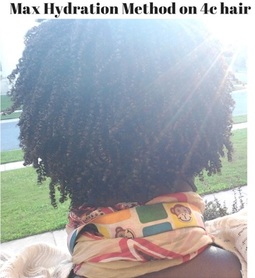
What products are required, and how long does it take?
The Max Hydration Method initial period lasts for 7 consecutive days. You can stretch your re-wetting/styling to every 2-3 days, but daily is recommended for best results. As far as products are concerned, you’ll need:
How do you do the Max Hydration Method?
As mentioned previously, the Max Hydration Method is aimed at being a 7-day cycle, but can be adjusted according to your time constraints and the needs of your hair. The method goes a little something like this:
Users of the Max Hydration Method are encouraged to use only approved/botanical products throughout this process. Although I am still trying to identify a consolidated list of products, the general idea is sticking as closely to the Curly Girl Method as possible (no sulfates, no cones, etc.). For starters, Miss Dee Kay outlines her list of Max Hydration Method-approved conditioners here. Additional reference: The Max Hydration Method Detailed Regimen Heather’s Opinion This all sounds very interesting and I love that the natural hair community is always trying to come up with new solutions to dryness, however, whilst I haven’t yet tried the method I think there are four very important issues with it that will probably stop me from ever trying it:
What I would really love to know is:
 Classic box braids. Classic box braids.
Yes, but not indefinitely!
Most of the benefit of regular conditioners comes from the stuff that coats your hair. These ingredients are designed to coat hair so that it looks more shiny and strengthens hair from the outside. That said, many products that are designed specifically for natural black hair recognise the fact that our hair is weaker so they include more ingredients that adsorb (penetrate) into hair and strengthen the hair fiber from the inside. This is especially true of deep conditioners. That said, this penetration process will happen within 20 to 30 minutes. Keeping the conditioner on for more than 30 minutes will have no added benefit whatsover. Let me explain it another way: you know when you have wilted salad leaves in the fridge? When you immerse the leaves in cold water they water goes into the leaf and it starts to look more solid again. They look fresher and can be served. After that point (when the leaves are "turgid") keeping the leaves in the water for longer has no benefit whatsoever. In fact, if it's a hot day those leaves will start rotting right there in the water! The key with using a conditioner is to make sure that it is evenly spread over all your hair.
In summary, if you leave your conditioner on your head for hours and hours there is no added benefit whatsoever. If you're like "but it feels softer" that has nothing to do with the conditioner, it's just the moisture. If you rinsed all the conditioner off and put a shower cap back on you would get the same result!
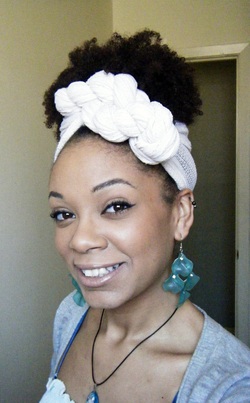 Click for Tori's regimen. Click for Tori's regimen.
I know some co-washers will start reading this blog feeling very irate that I would even suggest that co-washing is a bad idea but hear me out for a second before you get annoyed with me.
Now, I am not totally anti-co-washing, in fact, I think if you want to wash your hair more than once a week it is far better to co-wash between weekly shampoos. A few people I know have found that after co-washing only their hair gets drier and more brittle and they think that it's the co-washing that is to blame. The answer is: NO. Co-washing does not make your hair more dry in itself but it is EXTREMELY restrictive in what products you can use. Some ingredients in conditioners and leave-in moisturizers stick to your when applied so that they can keep your hair conditioned and moisturized for a while after the conditioning or moisturizing session. Some of these ingredients, will not wash off without shampoo. So when you re-apply your products these ingredients continue to build up and build up until your hair is indeed brittle, dry and starts breaking. Most co-washers are not educated enough about ingredients to know what they need to avoid. In fact, although I know a fair amount of what's a no-no for co-washers I would need to take a list when I go shopping because I wouldn't remember everything off by heart. Importantly, no list is exhaustive. This means no list will list everything and no list can because new ingredients are coming out all the time. So, what should co-washers avoid, in general:
In summary, co-washing can work if you make an effort to learn everything that must be avoided, however, in my opinion a co-wash only regimen is not worth it because shampoo does have an important role to play in healthy hair management: A clean, pliable and healthy scalp is essential for natural hair growth and clean hair is need to moisturise and condition hair effectively. 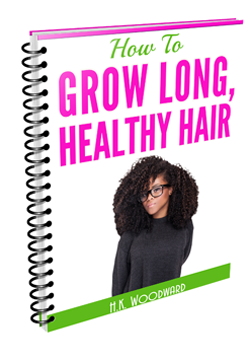
You might also like:
Get your FREE ebook on How To Grow Long, Healthy Natural Kinky or Curly Hair. |
I now blog about wealth creation - so if you have any money questions meet me there, you can do all sorts of cool things like leave me a voicemail.
By Heather Katsonga-Woodward
I was a natural hair blogger and mixtress living between London & Chicago from 2012 to 2017. I always thought I was 4C but some say 4B; images below - you decide! Heather xx Categories
All
Archives
November 2016
|




